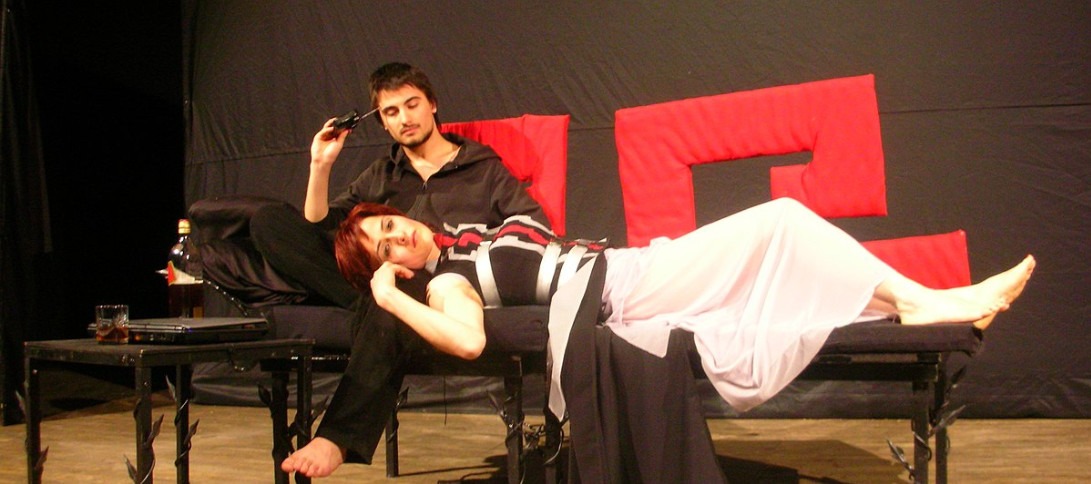Playwright spotlight: Why Kane matters
A radical in her time and ours, Sarah Kane is one of the greatest English Playwrights of the last fifty years, who is nearly never performed on the commercial stages. It is as if her plays have been given, like the biblical story that she was brought up with, a divine, damning mark, stamped on her even 26 years after she has passed away. Published are five plays and a short film screenplay. Too little for a writer who had such heightened sensitivity and genuine courage. She was well read and disciplined. She followed the news. She was politically brave. She wrote of the self and of society. She wrestled with faith and mental health. She hid from the world. She loved rehearsals and workshops whilst making edits to all of her plays until her death. Beyond what she saw as a cynical, closed-off millennial culture, her theatre work stands proud.
If you long for a drama or a poetry that will make a rested home in your head, Sarah Kane is one of these few masters who can deliver such constancy to you
The plays are specific yet epic. A whole article cannot recreate the experience of merely reading ‘Phaedra’s Love’, or watching a monologue performed from ‘4.48 Psychosis’. Harold Pinter observed that the act of turning the page of one her plays was violent. Her breakout play, ‘Blasted’, showed how atrocity can be found in peacetime. Ian’s racism and sexual assault of Cate is the strike of a match that sets off a blaze. Her tradition has been dubbed ‘In-yer-face-theatre’ by press and academia, lauding her in with the handful of other young writers of the Royal Court, pushing the boundaries of sex and violence in ’90s British theatre. To read a Sarah Kane play now is not a peak into the ‘End of history’ or ‘Cool Britannia’, a bygone cultural moment. It is to look at the world’s darkest places with clear, luminous eyes. This great lucidity flows through her plays. Humanity’s awful potential is thrown onto the stage. If you long for a drama or a poetry that will make a rested home in your head, Sarah Kane is one of these few masters who can deliver such constancy to you. The constant force in her work: the personal in perfect harmony with the social. A dialectal theatre, where two things are always happening at the same time. Contradiction is the hard ground to all her characters’ conflicts. Ian is funny and surprisingly sensitive to Cate’s emotions, all the while being a vile racist and rapist. The Soldier is tender when he talks about his murdered wife, only then to casually rant about the atrocities he’s committed.
The genocide in the Balkans was a recurring nightmare in her work
At face value, the plays may seem overtly cynical. Skimming through, searching for the goriest section or the worst perversion, you could mistake her for putting on stage a kind of emo-nihilism. The end of the world while listening to Joy Division. This idea is certainly there in her characters. The psychotic Tinker in ‘Cleansed’, who tortures everybody and just sinks deeper into sorrowful self-loathing. Ian in ‘Blasted’, a dying old bigot who lives off his final night in wallowing. Nothing’s supposed to live forever. That’s what a lot of theatre leaves you with these days. That everything is temporary and it all fizzles away. Something in her plays knows it’s wrong. The last line in the last ever play she wrote: Please open the curtains.” This is why her drama matters. It’s what made her radical then. It’s what makes her current, as she faced backlash and even hatred (how could a 23-year-old woman write such trash?) when ‘Blasted’ premiered in January 1995. A month after, in a BBC Arts radio interview, she responded to the vitriol: “We have the corpse of Yugoslavia rotting on our doorstep and what the press chose to do was get angry not about the corpse, but about the cultural event that draws attention to it.” The genocide in the Balkans was a recurring nightmare in her work. I dare anybody to say that Kane was indulging in sadomasochistic pleasures when she repeated stage directions such as “heavily beaten by an unseen group of men”, as these acts were taken from direct testimony of those who survived the Serb concentration camps.
Drama delivers justice rarely. Kane’s plays are the few that have that potential
Turning the familiar unfamiliar. In ‘Blasted’, a fancy hotel room in Leeds is bombed out. In ‘Cleansed’, a Midlands university (likely modelled off Birmingham where Kane studied) is turned into a concentration camp. What may have seemed sub-real to audiences of past and present, was all too real for the victims of Europe’s largest genocide since the Holocaust. Drama delivers justice rarely. Kane’s plays are the few that have that potential.
An anniversary production of ‘4.48 Psychosis’ (played at the Royal Court this past June) is at the Other Place this July, and famed director Rebecca Frecknall is reviving ‘Cleansed’ in the Almeida Theatre next summer. New professional productions, though rare for Sarah Kane, mean that professionals are interested and people want to see them. The old Latin proverb fits her perfectly. Kane: a writer whose beauty and power will sail through time, reminding us of our collective pains and joys. ‘Ars Longa, Vita Brevis’: Art is long, life is short.

Comments